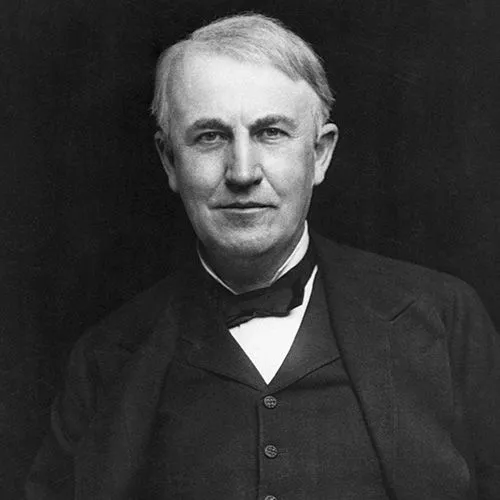Have you ever felt like you’re drifting through life without a clear direction?
Setting long-term personal goals changes all that. They provide focus, motivation, and a sense of accomplishment. Imagine the satisfaction of reaching a milestone you worked towards for years!
In this article, you’ll discover exciting long-term goal ideas and learn essential strategies for setting and achieving them.
Key Takeaways:
- Good Long-term personal goals are about the big picture, spanning months or even years.
- Goals in different life areas – career, finances, relationships, etc. – create a balanced plan for growth.
- Overcoming obstacles and staying motivated is vital for reaching your goals.
Ready to transform your life? Let’s dive in!
"All our dreams can come true if we have the courage to pursue them."
 Walt Disney
Walt Disney 20 Good Long-Term Personal Goals for Different Areas
Choosing the right long-term goals is an exciting first step towards building your ideal future.
In this section, you’ll find ideas across different life areas to kickstart your planning. It’s okay to personalize these goals – the aim is to select ambitions that truly motivate you.
Career Goals
Your career plays a considerable role in your life’s satisfaction. Long-term career goals help you climb the ladder, make a meaningful impact, and find true fulfillment in your work.
Here are a few ideas:
- Achieve a Leadership Position: Aim to take on leadership roles that challenge and allow you to influence your organization’s direction.
- Master Your Field: Strive for expertise in your area of work through continuous learning and professional development.
- Expand Your Professional Network: Build a robust network of contacts within and outside your industry to open up new opportunities and collaborations.
- Improve Public Speaking Skills: Enhance your ability to communicate effectively in front of an audience, a vital skill for professional growth.
- Earn a Professional Certification: Obtain certifications relevant to your field to boost your credentials and marketability.
- Achieve a Work-Life Balance: Set boundaries and manage your time effectively to ensure both personal well-being and career success.
- Start Your Own Business: If entrepreneurship appeals to you, aim to establish and grow your own venture.
- Become a Mentor: Share your knowledge and experience by mentoring others in your field.
- Gain International Work Experience: Look for opportunities to work abroad and gain exposure to different cultures and business practices.
- Publish Professional Articles or a Book: Contribute to your field by writing articles or books that highlight your expertise and insights.
- Win an Industry Award: Aim for excellence in your work that could be recognized by peers and industry bodies.
- Learn a New Language: Enhance your communication skills and marketability by becoming fluent in another language relevant to your industry.
- Transition to a New Industry: If you’re seeking a fresh challenge, consider transitioning to a different sector where your skills can be applied.
- Achieve Financial Independence through Your Career: Plan and manage your finances to reach financial independence based on your career earnings.
- Develop a Strong Personal Brand: Build and maintain a personal brand that reflects your professional values and skills.
- Implement a Successful Project: Lead a project from conception to successful implementation, showcasing your ability to manage and execute effectively.
- Enhance Team Collaboration: Foster an environment that encourages teamwork, creativity, and efficiency among your colleagues.
- Negotiate Your Ideal Salary and Benefits: Develop negotiation skills to ensure you’re fairly compensated for your contributions.
- Attend Leading Industry Conferences: Participate in key conferences to stay abreast of industry trends and network with professionals.
- Promote Sustainability and Ethics in Your Work: Commit to ethical practices and contribute to sustainability initiatives within your professional sphere.

Studies have shown that people who explicitly set goals are 42% more likely to achieve them than those who don’t. (Source: Dominican University of California)
Health & Fitness Goals
Feeling healthy and strong empowers you in all aspects of your life. Set long-term health and fitness goals for lasting improvements to your overall well-being. Here are a few ideas:
- Run a Marathon: Train to complete a marathon, building up your endurance and physical stamina.
- Adopt a Balanced Diet: Focus on incorporating a variety of nutrients into your diet, aiming for a balance of proteins, carbohydrates, fats, and micronutrients.
- Achieve a Healthy Weight: Set a goal to reach and maintain a weight that’s healthy for you, as advised by a healthcare professional.
- Increase Strength: Work on increasing your strength through a structured weight training program.
- Improve Flexibility: Incorporate stretching or yoga into your routine to enhance flexibility and reduce the risk of injury.
- Master a Physical Skill: Whether it’s learning to swim, ride a bike, or perform a dance, aim to master a new physical skill.
- Maintain Regular Physical Activity: Commit to a certain amount of physical activity each week, following guidelines like those from the CDC or WHO for optimal health.
- Reduce Processed Food Consumption: Aim to minimize your intake of processed foods, opting for whole, natural options instead.
- Establish a Consistent Sleep Schedule: Work towards achieving 7-9 hours of quality sleep per night, as recommended for adults.
- Complete a Fitness Challenge: Participate in a fitness challenge to push your limits and achieve a specific goal.
- Drink More Water: Increase your daily water intake to stay hydrated and support overall health.
- Learn to Cook Healthy Meals: Develop your cooking skills with a focus on healthy recipes and cooking methods.
- Practice Mindful Eating: Cultivate a habit of mindful eating to improve your relationship with food and enjoy meals without overindulging.
- Reduce Stress through Exercise: Utilize physical activity as a tool to manage stress and improve mental health.
- Achieve a Specific Body Composition Goal: Work towards a specific body fat percentage or muscle mass goal, as appropriate for your body type and health status.
- Participate in a Triathlon: Train for and complete a triathlon, challenging yourself in swimming, cycling, and running.
- Develop a Home Exercise Routine: Create a home exercise routine that you can follow regularly, regardless of gym access.
- Quit Smoking or Reduce Alcohol Intake: Set a goal to quit smoking or reduce your alcohol consumption to improve overall health.
- Join a Sports Team or Club: Engage in team sports or join a fitness club to stay active and socialize.
- Monitor Health Metrics: Regularly check and monitor important health metrics like blood pressure, cholesterol levels, and blood sugar, aiming for optimal ranges.
Disclaimer: Before starting any new fitness program, consult your doctor, especially if you have any underlying health conditions. For reliable health information, refer to websites like the Centers for Disease Control and Prevention (CDC)
"Our greatest weakness lies in giving up. The most certain way to succeed is always to try just one more time."
 Thomas A. Edison
Thomas A. Edison Finance Goals
Managing your finances wisely is key to achieving financial stability and realizing your dreams. Setting long-term finance goals can help you navigate through your financial journey with a clear direction.
Here are 20 finance goals to consider for a secure financial future.
- Create a Budget and Stick to It: Develop a monthly budget that accounts for all your income and expenses, and adhere to it to manage your finances effectively.
- Build an Emergency Fund: Save enough money to cover at least 3-6 months of living expenses for unexpected emergencies.
- Pay Off Debt: Aim to pay off any debts, starting with those with the highest interest rates to reduce the overall interest paid over time.
- Save for Retirement: Contribute regularly to a retirement account, such as a 401(k) or IRA, to ensure a comfortable retirement.
- Invest in the Stock Market: Start investing in stocks or mutual funds to build wealth over the long term, taking into account your risk tolerance and investment goals.
- Increase Your Income: Look for ways to boost your income through promotions, new job opportunities, or side hustles.
- Save for a Down Payment on a Home: Set aside money each month towards a down payment for a house.
- Improve Your Credit Score: Work on improving your credit score by paying bills on time and reducing debt, which can help you get better rates on loans and credit.
- Learn About Personal Finance: Commit to educating yourself about personal finance through books, courses, and reputable online resources.
- Set Up a College Fund: If applicable, start saving for your children’s college education through a 529 plan or other education savings account.
- Invest in Real Estate: Consider investing in real estate as a way to generate passive income and build equity.
- Automate Savings and Investments: Set up automatic transfers to your savings and investment accounts to ensure you consistently save and invest without having to think about it.
- Diversify Your Investment Portfolio: Spread your investments across different asset classes to reduce risk and increase potential returns.
- Reduce Unnecessary Expenses: Identify areas where you can cut back on spending, such as dining out, subscriptions, and luxury items.
- Plan for Large Purchases: Save in advance for large purchases, such as a car or vacation, to avoid going into debt.
- Review and Adjust Your Financial Plan Regularly: Regularly assess your financial plan and adjust it as needed to stay on track with your goals.
- Protect Your Wealth with Insurance: Ensure you have adequate insurance coverage, including health, life, and property insurance, to protect against financial loss.
- Plan Your Estate: Create a will and other estate planning documents to ensure your assets are distributed according to your wishes.
- Achieve Financial Independence: Work towards having enough income from investments to cover your living expenses without needing to work.
- Give Back to the Community: Once financially stable, consider giving back by donating to charities or supporting community projects.

Disclaimer: This information is not a substitute for professional financial advice. Consult with a licensed financial advisor to receive guidance tailored to your unique circumstances. For more financial information, always refer to resources like the US Securities and Exchange Commission (SEC)
Personal Development Goals
Personal development is the never-ending journey of self-improvement. Setting goals in this area propels you towards becoming the best version of yourself. Consider these ideas:
- Develop a Growth Mindset: Embrace challenges and view failures as opportunities to grow and learn.
- Improve Emotional Intelligence: Work on understanding and managing your emotions, as well as recognizing and empathizing with others’.
- Learn a New Skill: Commit to learning a new skill that interests you or can contribute to your career or personal life.
- Read Regularly: Set a goal to read books that contribute to your knowledge, understanding, and personal growth.
- Cultivate a Positive Attitude: Practice positivity and gratitude to improve your outlook on life and your interactions with others.
- Improve Time Management: Learn and apply time management techniques to make the most of your day and achieve your goals more effectively.
- Enhance Communication Skills: Work on your verbal, non-verbal, and written communication skills to improve your relationships and professional prospects.
- Set Boundaries: Learn to set healthy boundaries in personal and professional relationships to maintain your well-being.
- Become More Adaptable: Improve your ability to adapt to change and handle unexpected situations with resilience.
- Practice Mindfulness: Incorporate mindfulness practices into your daily routine to improve mental clarity and reduce stress.
- Build Confidence: Take on new challenges and step out of your comfort zone to build self-confidence.
- Improve Physical Health: Recognize the connection between physical health and personal development, and take steps to maintain it.
- Learn to Delegate: Understand the importance of delegation in managing workload and improving efficiency.
- Enhance Leadership Skills: Develop leadership qualities that can help you lead more effectively in personal and professional situations.
- Cultivate Creativity: Engage in activities that stimulate creativity and innovation.
- Achieve Work-Life Balance: Strive for a balance that allows you to be productive at work while having time to enjoy personal interests and relationships.
- Improve Decision-Making Skills: Work on making informed and thoughtful decisions quickly and confidently.
- Develop a Personal Brand: Build and maintain a personal brand that accurately reflects your values, skills, and professional aspirations.
- Practice Self-Compassion: Learn to be kind to yourself, recognizing your worth and treating yourself with the same compassion you offer others.
- Set Long-Term Career Goals: Align your personal development efforts with your long-term career aspirations, ensuring they complement each other.
According to a survey by LinkedIn, 61% of professionals agree that soft skills, including leadership and communication, are just as important as hard skills for career success. (Source: LinkedIn Workplace Learning Report)
Personal development is a marathon, not a sprint. It’s about making continuous progress towards becoming the best version of yourself.
Find your Perfect Goal!
Choosing the right long-term goals will propel you towards the life you truly want. But where do you start?
This section is about looking both inward and outward for inspiration. We’ll begin with some self-reflection to uncover your passions and values.
Then, I’ll share an inspiring story to demonstrate the transformative power of goal-setting.
"The trouble with not having a goal is that you can spend your life running up and down the field and never score."
 Bill Copeland
Bill Copeland Identify Your Perfect Goal
Finding your perfect goal doesn’t have to be an overwhelming process. By focusing on a few key steps, you can uncover a goal that truly aligns with your aspirations and values. Here’s a streamlined approach:
- Reflect on What Matters Most: Begin with introspection. Consider your passions, values, and the impact you want to make in the world. Identifying what truly matters to you is the cornerstone of setting a meaningful goal.
- Assess Your Skills and Interests: Take stock of what you’re good at and what you enjoy doing. Your perfect goal should leverage your strengths and ignite your enthusiasm.
- Visualize Your Future: Imagine where you want to be in 5 or 10 years. What are you doing? How do you feel? This vision can guide you toward a goal that bridges the gap between your current reality and where you want to end up.
- Commit and Take the First Step: Decide to go after your goal with determination and take the first action. Momentum builds with each step you take, propelling you closer to your perfect goal.
Studies show setting specific and challenging goals leads to higher performance 90% of the time. (Source: Locke & Latham)
Success Story
Alex spent long hours in front of the computer, his posture gradually deteriorating as he focused on lines of code. He’d always been on the scrawnier side, and while he wasn’t unhappy with his body, he felt a nagging sense of wanting to be stronger and more physically capable.
One day, a coworker sporting a noticeably leaner physique mentioned a new gym nearby. Intrigued, Alex decided to give it a try. Initially, he felt lost and intimidated amidst the barbells and seasoned lifters.
But something sparked in him. With the help of a trainer, Alex learned proper exercise form and designed a workout plan. Progress came slowly, but steadily. Soon, he noticed small gains - a bit more definition in his shoulders, increased energy levels, and better focus at work.
Months later, lifting weights evolved from a chore into a passion. Alex loved pushing his limits, feeling his body transform, and the camaraderie of the gym. Along with the physical changes, he gained confidence and a new appreciation for the power of consistency.

Key Takeaway: Sometimes, your perfect goals emerge unexpectedly. Stepping outside your comfort zone can open doors to new passions. Fitness goals not only improve your physical well-being but can positively impact other areas of your life, from confidence to mental focus.
Obstacles & Stategies on Goal-Setting
We all want to achieve our goals, but the road to success isn’t always smooth.
This section dives deeper into two important aspects: First, we’ll cover strategies for setting goals in a way that maximizes your chances of actually achieving them.
"The secret of getting ahead is getting started."
 Mark Twain
Mark Twain Then we’ll explore the most common obstacles that might trip you up and learn how to overcome them.
Strategies for Effective Goal Setting
Setting the right goals is only half the battle – you also need a solid strategy to achieve them. Here are proven techniques to boost your chances of success:
- The SMART Goal Framework: Make sure each goal you set is Specific, Measurable, Achievable, Relevant, and Time-bound. This framework helps clarify your ideas, focus your efforts, and use your time and resources productively.
- Breaking Down Big Goals: Ambitious goals can feel overwhelming. Break them into smaller, manageable steps. This makes progress more visible and prevents you from feeling discouraged.
- Creating a Vision Board: A vision board is a visual representation of your dreams. Compile pictures, quotes, and words that inspire you and represent your goals. Seeing it daily serves as a powerful reminder.
- Accountability and Support Systems: Share your goals with trusted friends or family, or find an accountability partner. Knowing someone’s checking in can make a huge difference in your commitment.
- Goal Tracking and Progress Review: Set up a system to track your progress toward milestones. Celebrate small wins along the way to stay motivated!

Common Obstacles to Goal Achievement
Even with a solid plan in place, achieving your goals can be challenging due to various obstacles. Recognizing and understanding these common hurdles can prepare you to navigate them effectively:
- Procrastination: The thief of time! Procrastination is often rooted in fear, perfectionism, or a perceived lack of time. Try breaking tasks into smaller chunks, setting deadlines, and eliminating distractions while you work.
- Lack of Motivation: It’s easy to lose momentum, especially when goals are long-term. Remember your “why” – the reason behind your goal. Visualize success, reward yourself for progress, and connect with those who inspire you.
- Fear of Failure: Fear can be paralyzing. Remember that failure is part of every success story. Reframe failures as learning opportunities and focus on progress, not perfection.
- Distractions and Lack of Focus: Notifications, social media, and other interruptions eat away at your time and disrupt your workflow. Implement strategies like blocking out specific work times, silencing your phone, and finding a focused workspace.
- Setting Unrealistic Goals: Aiming too high can sabotage your efforts. It’s okay to dream big, but start with achievable goals that build momentum. As you gain confidence, you can scale up to more ambitious targets.
- Self-Sabotaging Habits: Negative self-talk, limiting beliefs, and unhealthy habits can hold you back. Be aware of these patterns and work to develop a positive mindset and empowering routines.
To overcome these obstacles, it’s important to maintain focus, adaptability, and resilience.
"Obstacles are those frightful things you see when you take your eyes off your goal."
 Henry Ford
Henry Ford Developing strategies to address each obstacle as it arises, such as improving time management skills, seeking support, and cultivating a positive mindset, can significantly enhance your ability to achieve your goals.
Conclusion
Setting long-term personal goals is an incredibly powerful way to take charge of your life and design the future you want.
Remember, this isn’t about achieving perfection, it’s about progress. Be patient, celebrate milestones, and embrace the exciting journey of personal growth.
Next Steps
- Brainstorm: Spend some quiet time reflecting on the different areas of your life and the goals listed in this article. Which ones resonate with you? Jot down everything that comes to mind.
- Narrow it Down: Pick 2-3 goals that truly excite you. Don’t feel pressured to choose them all!
- Make it SMART: Using the SMART goal framework, break your chosen goals down into smaller, actionable steps and set clear deadlines.
- Take the First Step: The hardest part is often just starting. Commit to taking one small action towards your goal today!
You are capable of amazing things. Believe in yourself, and don’t be afraid to dream big!
Frequently Asked Questions
What are smart goals long term?
Smart long-term goals are objectives set for an extended period, typically beyond a year, that follow the SMART criteria: Specific, Measurable, Achievable, Relevant, and Time-bound.
These goals are clear and well-defined, with a realistic path to achievement, a way to measure progress, relevance to your larger life plans, and a specific timeline.
Is 5 years a long term goal?
Yes, a 5-year goal is considered a long-term goal. Long-term goals are those that take several years to achieve, providing ample time for planning, development, and execution.
They often require more complex steps and persistence compared to short-term goals.
What is a 10 year master goal plan?
A 10-year master goal plan is a comprehensive, strategic outline of your key objectives and aspirations you aim to achieve over the next decade.
It involves setting major goals that align with your vision for your life, career, personal development, and other areas, breaking them down into smaller, actionable steps and periodically reviewing and adjusting your plan as needed.
What is a lifetime goal?
A lifetime goal is a significant objective or aspiration that you aim to achieve over the course of your life.
These goals reflect your deepest values, passions, and life’s purpose, encompassing personal, professional, and sometimes altruistic ambitions that require long-term commitment and dedication.
How do I choose my life goals?
Choosing your life goals involves a deep reflection on your values, interests, and what you want your legacy to be. Consider what makes you happy, areas you want to improve, and how you want to impact the world around you.
Assess your strengths and opportunities for growth, and set goals that are challenging yet achievable, align with your personal values, and contribute to your overall well-being and fulfillment.




